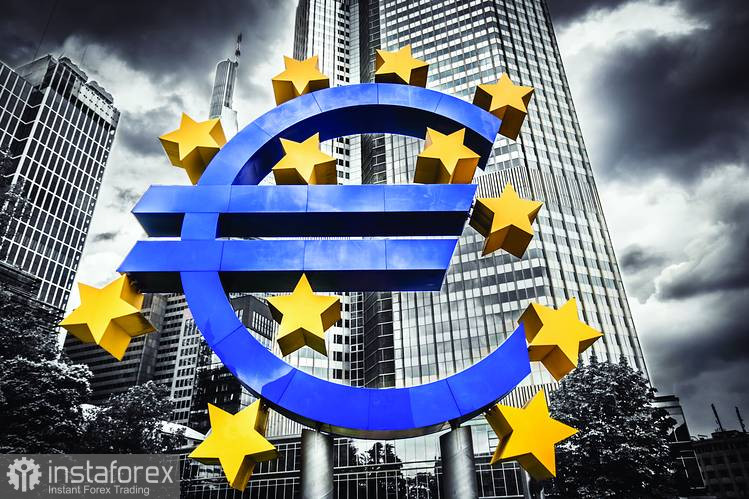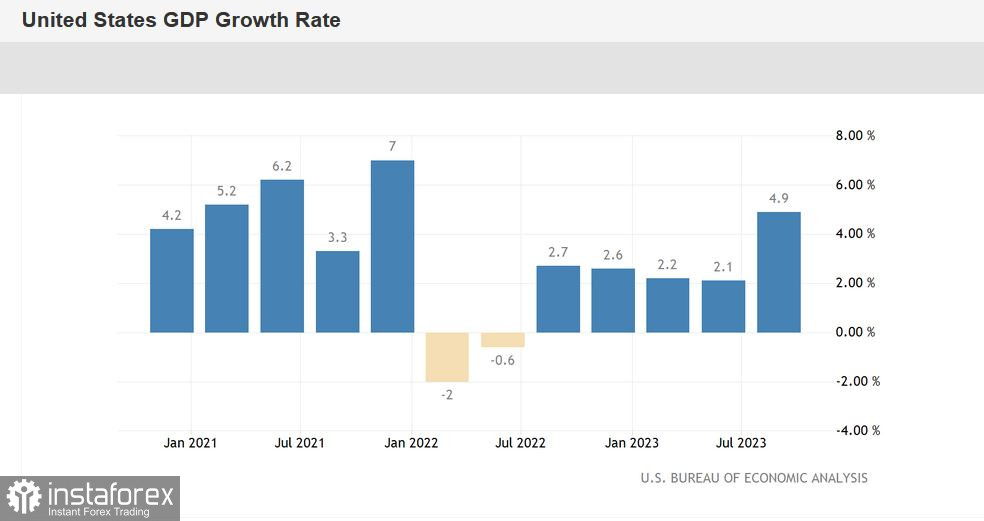"Now is not the time to talk about future prospects". That was the tone of the European Central Bank's October meeting, the results of which were revealed on Thursday. Overall, the central bank made the expected decision to maintain interest rates as they were. The likelihood of this scenario being realized was 100%, so the market paid little attention to the formal outcomes of the meeting. The EUR/USD pair remained in a standstill, awaiting ECB President Christine Lagarde's press conference.
Lagarde slightly stirred the pair with her rhetoric, and the dynamics initially favored the euro. The bulls pushed toward the boundaries of the 1.6-figure but hesitated to attack that target due to weak fundamental arguments.
It's worth noting that in the lead-up to the October meeting, most experts were confident that the ECB would keep not only monetary policy unchanged but also the main formulations of the accompanying statement unchanged. According to their forecasts, Lagarde was also expected to reiterate the main theses outlined after the previous meeting - that the ECB was unlikely to raise rates in the foreseeable future but would commit to keeping them at the current level for a long time. In addition, some experts considered the possibility that the Bank would reduce interest rates in the first half of 2024, given the drop in overall and core inflation in the eurozone and the weak 0.1% growth in the European economy in the second quarter.

However, the ECB did not present any hawkish or dovish surprises. Admittedly, Lagarde did tweak the tone of her rhetoric, offering some support for the euro, but these remarks failed to impress the market. In general, the ECB head merely dispelled rumors that the central bank is ready to discuss the timing and conditions of monetary policy easing. According to her, the issue of lowering interest rates was not discussed at the recent meeting as "it would be premature." She also said that the ECB had not discussed the possibility of changing the terms of the PEPP asset purchase program, which had been rumored in October. Lagarde emphasized that the central bank would reinvest all the cash it receives from maturing bonds it holds under the program, at least until the end of 2024.
Regarding the fate of interest rates, on one hand, the ECB head reiterated that "rates are at levels that, maintained for a sufficiently long duration, will make a substantial contribution to the timely return of inflation to our target." But on the other hand, she listed inflationary risks. Among these are the recent sharp rise in energy prices due to geopolitical tensions in the Middle East, the possible increase in food prices, and active wage growth in eurozone countries. Lagarde emphasized that internal price pressures remain strong, and "the risks to economic growth remain tilted to the downside."
Such rhetoric does not indicate that the ECB is ready to return to raising rates in the near future. But at the same time, Lagarde effectively refuted rumors that the central bank is considering easing the terms of its APP in the near term. Her statement that "now is not the time for forward guidance" can be interpreted in different ways, either in the context of potential future policy tightening or easing. However, if we compile the main theses voiced by Lagarde, we can conclude that the ECB has primarily distanced itself from the scenario of lowering interest rates in the near future.
Thus, the ECB, while not providing substantial support to the euro, also did not exert significant pressure on the single currency. The ECB's meeting did not meet the doves' expectations (as there were no hawkish expectations).
We can assume that the market will shift its focus to American events starting on Friday. The main focus will be on the PCE index. The U.S. economy expanded at a robust 4.9% annual rate in the third quarter, the highest growth rate since the fourth quarter of 2021, compared to a mere 2.1% growth in the U.S. economy in the second quarter. If the primary personal consumption expenditure index reaches the forecast level (not to mention the "red zone"), the dollar could come under significant pressure as risk appetite may increase in the market. Signs of slowing inflation amid strong GDP growth are likely to contribute to a decline in Treasury yields, and consequently, the greenback.

At the same time, the Middle East plays the role of a potential "black swan". Geopolitical tension, which has been escalating for several weeks, keeps the safe-haven dollar afloat. According to Israel's prime minister, the country's military and political leadership has not ruled out a ground operation in the Gaza Strip, contrary to corresponding rumors. However, he declined to discuss any specific timing or deadlines.
Thus, the situation for the EUR/USD pair has become quite ambiguous. On one hand, the ECB implemented the baseline scenario and refrained from sinking the euro with dovish remarks. On the other hand, the market continues to monitor events in the Middle East. In addition, traders are not in a rush to make conclusions ahead of the release of the core PCE index data. In other words, the situation remains highly contradictory, so it is advisable to maintain a wait-and-see position until Friday's release.





















